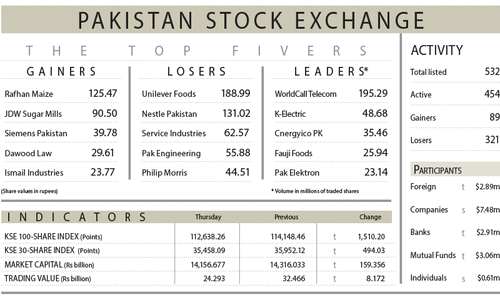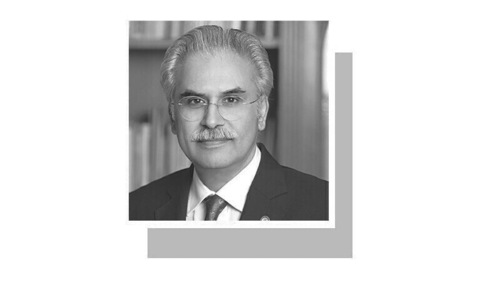In 1976, a 9-year-old boy watched his father succumb to an undiagnosed disease, leaving behind a family of four, a house with a leaky roof, little money, a few musical instruments and the goodwill of the south Indian film industries. For the next two years, the boy watched his mother try to make ends meet by hiring out the musical instruments. Since that didn’t work, the boy converted his schooling into a hobby and began working with musicians who hired the family’s instruments. And when these musicians began buying their own gear, the boy’s mother said:
‘Why don’t you learn to play the keyboards?’
For the next decade, the boy worked as a session musician “with almost every music director in the South.” By 1988, the boy – now a young man of twenty-one – was working double shifts. From 9 to 9, he worked with film musicians Raj-Koti, and then grabbed a quick bite on his way to another studio where he recorded jingles till 4 am.
The major turning point in the young man’s life came in 1989. Although he had built a music studio in his backyard, he had no money to fill it with musical equipment. So his mother sold the jewellery she had saved up for the marriages of her two younger daughters. Using this money, the young man bought his first Fostex 16-track mixer/recorder. During this time, even the professionals in the Chennai film industry used a mono track. And here, the young man had 16 tracks at his fingertips! He recalls:
‘All those years of struggle, humiliation, being ordered around by other people, seeing worry on the faces of my family, remembering the feeling of being overwhelmed by an inferiority complex, the lack of self-esteem, and even at times, fighting suicidal thoughts – all that seemed to fade away. Sitting in the music studio that night, and staring at my new recorder, I felt like a king. The new me was born and the future seemed glorious.’
A couple of years later, renowned film director Mani Ratnam signed that young man for a film called Roja. And the rest, of course, is history.
What you’ve read above is the authentic account of Allah Rakha Rahman’s past. Finally! We no longer have to rely on apocryphal anecdotes and misinterpretations of events. By speaking candidly with Nasreen Munni Kabir – and allowing the transcripts of their delightfully freewheeling conversations to take the form of the newly released book The spirit of music – Rahman has made substantial revelations about his life and work.
The conversations happened over four years, but they’re strung together as a monolith that’s interspersed with pictures depicting the personal and professional personalities of Rahman. As the conversations and the pictures spin the reader’s imagination, he realises the extent to which this maestro is immersed in his work. His life is busier than our dreams. He has homes in three continents and engagements in at least five, but he never seems to leave the tranquillity of his inner world. The Sufi themes of silence, tolerance, infinity and humility dominate his soul and allow him to perceive work as meditation, a release from the humdrum of existence, an opportunity to discover the vertical depth in each human moment.
Perhaps this is why he could even comprehend the possibility of playing a lullaby to underline the grief of a mother whose only son has just died (Luka chuppi from Rang de Basanti). Such experimentation, of course, is not possible without the support of the directors and lyricists. Rahman acknowledges them in this book and tells us how the uniqueness of each of these artists brings out the best in him. The inherent strengths of his associates, his knowledge of various forms of music – Carnatic, Hindustani, Western classical, Sufi, rap, pop, rock and roll, jazz etc – and his spiritual base seem to be the ingredients of his music. He says:
‘When I’m composing music, I sometimes close my eyes and enter into a trance-like state and anything I pay sounds all right. But to achieve that state, I think of certain invocations that I’ve been taught ... Prayer helps a lot too. I do my zikr – a meditation to remember Allah. I go into that state for a few hours. It doesn’t happen all the time...’
Allow him to “be quiet and perhaps distant from time to time” and he’ll churn out his magic! That’s about it.
One must congratulate Kabir for achieving a smooth narrative flow throughout and allowing Rahman’s singular personality to emerge through this book. Having said that, when she poses some of her questions, one cannot but feel that a human note is intruding into the whisper of the cosmos.
Eshwar Sundaresan is a Bangalore-based writer, freelance journalist, ideator and entrepreneur. His works are Googlable.
The views expressed by this blogger and in the following reader comments do not necessarily reflect the views and policies of the Dawn Media Group.
Fact file
- Despite being a veteran in the Malayalam music industry, Rahman’s father R. K. Sekhar’s first film as a composer was released on the day he died.
- Rahman’s grandfather was a bhajan singer in a temple in Mylapore in south Chennai.
- Rahman became a part of four music bands in his youth. He doesn’t mention the name of the first, but the other three were named Magic, Roots and Nemesis Avenue.
- Peer Karimullah Shah Qadri was Rahman’s first Sufi teacher. He got acquainted with the family when it was trying to find solutions to R. K. Sekhar’s health problems.
- Rahman never liked his birth name, Dilip Kumar. Before embracing Sufism, he visited a Hindu astrologer who suggested “Abdul Rahman” and “Abdul Rahim” as suitable options for a new name! He liked “Rehman.” His mother’s intuition, meanwhile, suggested that he be called Allahrakha. Hence the unusual name.
- Rahman’s logistical limitations accidentally helped him create his signature style. When he ran out of recorded material while composing a song – say he wanted the flute playing extended at a certain point, but the flutist had gone home – he would fill the absence of the flute with another instrument. This became a pattern and a style that people seemed to accept.
- When he gets stuck, Rahman derives inspiration from the poetry of the legendary Tamil poet and freedom fighter Subramanya Bharathi.
- Rahman married Saira in March 1995, in the same building where he opened AM Studios in 2006.
- Rahman saw Nusrat Fateh Ali Khan – whom he revered – perform Live in New York’s Radio City Hall in 1996; over six thousand white and black Americans swayed to the rendition of Allah Hoo that evening.
- Rahman sang in public for the first time during the 1996 Filmfare awards. He had, of course, recorded numerous songs in Tamil and Hindustani by then.
- In 1994-95 Subhash Ghai suggested that Rahman learn Hindi. He partially accomplished this before recording Rangeela. Between 2001 and 2003, he studied Urdu. Till date, he feels that not mastering the language helps create fresh music.
- 2003-06 was the most confused period of Rahman’s life. He was disturbed by 9/11 and the Iraq war, and the way the world was getting divided. In this backdrop, he met his current spiritual teacher.
- Khwaja mere khwaja has been written by Rahman’s current spiritual teacher under the pen name Kashif. When he performs this song Live, he gives his audience a glimpse of his inner world.
- Rap artist and friend Blaaze contributed the opening gusto to the hit song Masti ki paathshala. ‘Be a rebel... lose control,’ Blaaze told Rahman over the phone. Prasoon Joshi then penned the rest of the song.
- Rahman’s favourite “be by myself” haunts are Regent Park in London and an unnamed dargah close to Mahabalipuram.
- In addition to Nusret Fatah Ali Khan, Rahman is fascinated by the music of Vangelis, Peter Gabriel, John Williams, Craig Armstrong and Hans Zimmer.










































